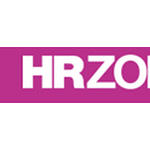The other day I was thinking about my day-to-day conversations and where I find myself working and giving others advice and it struck me that most of what I say can be summarised in to the two areas: well-being and meta skills.
I believe that we are, and will continue to be, experiencing significant transition. These times will need us all to acknowledge our vulnerability and to support each other and have an enhanced level of self-awareness; a level of humility to accept we can’t really predict the future.
Many will find this difficult and unnatural. Often we are “trained” to work with predictable situations and to avoid unnecessary risk – most of us don’t deal well with uncertainty but we need to learn a level of comfort with this, whilst remembering to control and influence where we can (and of course not copping out by blaming the circumstances for our own action or inaction).
Whether speaking about the importance of making plans or thinking differently and using this time of disruption to question the norms we have become comfortable with, at the centre of this will be well-being and meta skills.
For those who are unsure, here’s what I mean:
Well-being
All employees, regardless of status, background or lifestyle, are at the heart of the organisation. This includes health, safety, mental welfare, satisfaction, potential, engagement, security, performance, development, growth and progression.
This is about having a culture where employees choose to contribute as much as they can to the organisation so that the organisation can contribute to the economy – whether public, private or not-for-profit. As I have said before, it is more than posters, fruit baskets and gym membership; it is a complete culture and way of thinking, and this culture is then supported by process and systems (and not the other way around).
This extends to potential employees and candidates. Let’s not add to the anxiety, frustration and stress that those seeking work will be feeling. Can we all, regardless of our role in the organisation, do whatever it takes to ensure that our recruitment approaches have strong elements of engagement and respect?
Meta Skills
Learning to adapt and be comfortable with ambiguity are examples of meta skills. These are the behaviours that ensure we perform to our best; self-awareness, resilience, creativity all wrapped up with a sprinkling of agility is the order of the day. These behaviours do not come from a training course or on-line learning but from workshops where conversation and debate are the central activities, and of course from coaching and mentoring discussions.
It is meta skills that will make the difference to us all coping better with what comes our way over the next while, and since these skills (in my opinion) have been neglected in favour of job and technical skills, it is time to work together to identify where, for example, our natural traits and personality help us cope and where these hinder. These skills are often called “soft” and this label completely undermines the crucial role they play in our everyday activity.
Many people have recently shown themselves to be resilient and agile, and although most have needed support from friends and colleagues, they are emerging stronger and feeling more in control of their workload after having adapted to different working practices.
This is a time to focus on leadership traits and responsibilities and to ensure that everyone, whether in a leadership position or not, is genuinely engaged with their colleagues and taking cognisance of the experiences people have been through of late. I am not a huge fan of the phrase “the new normal” – if we continue to use this phrase, we are kidding ourselves that normal will be back or there will be a period of stability to come.
The last few months have been a time of mini revolutions alongside evolution, and with more to come, please remember to:
- Be kind and remember the importance of relationships – and not just e-mails
- Be clear in your expectations from others – life is stressful enough without confusion or doubt
- Be patient with yourself as you deal with uncertainty
- Be a grown-up and question your own levels of petulance or victim-thinking
- Be mindful and make sure you take control and influence as much as you can
- Be objective and work with others to get things into perspective
- Be respectful of other’s feelings and efforts
P.S: the above bullet points? They’re all meta skills by the way, which in their own way, support well-being!
Author bio: Lesley Gilmartin, Head of Leadership Services at B + C Executive
Photo credit: Katie Moum on Unsplash




